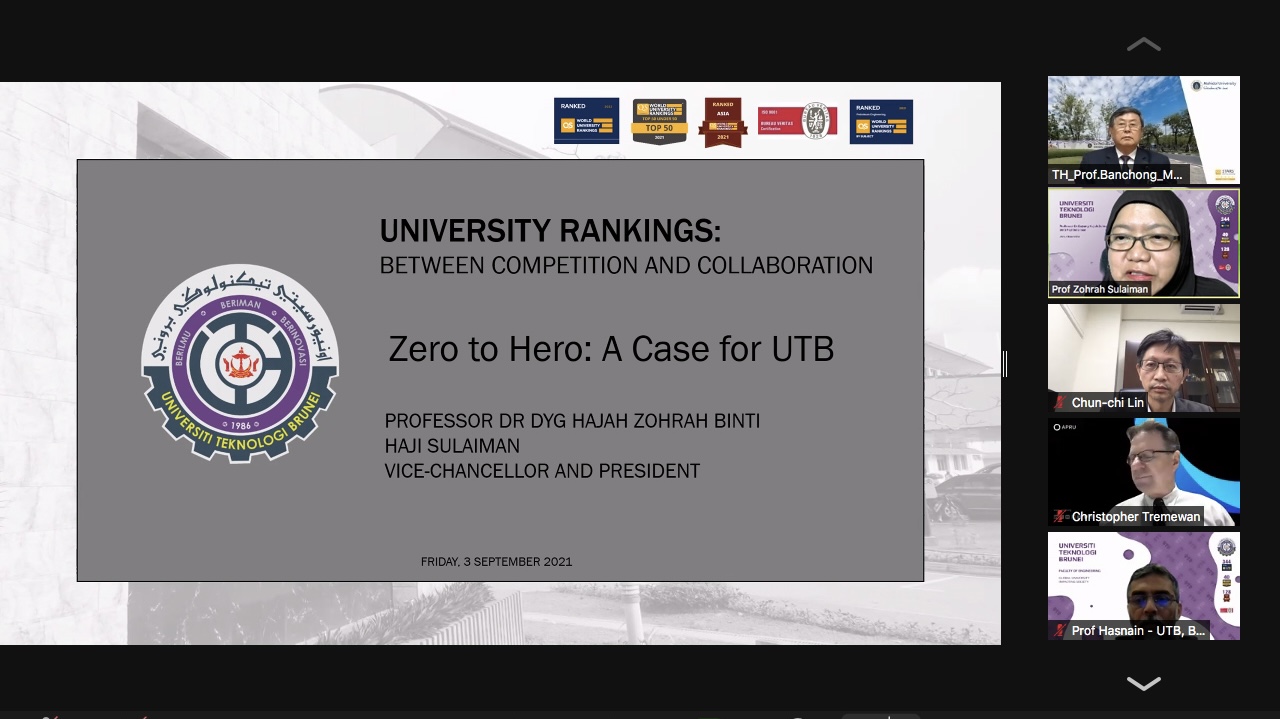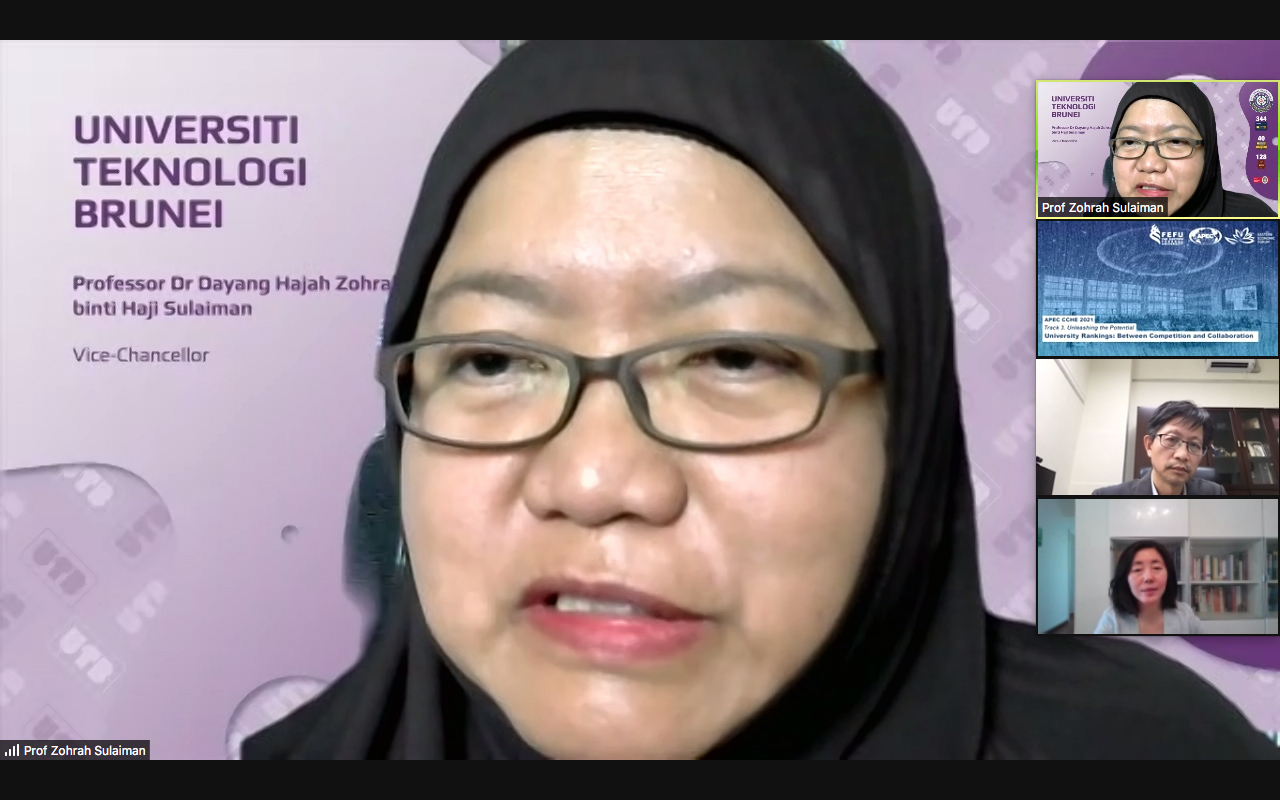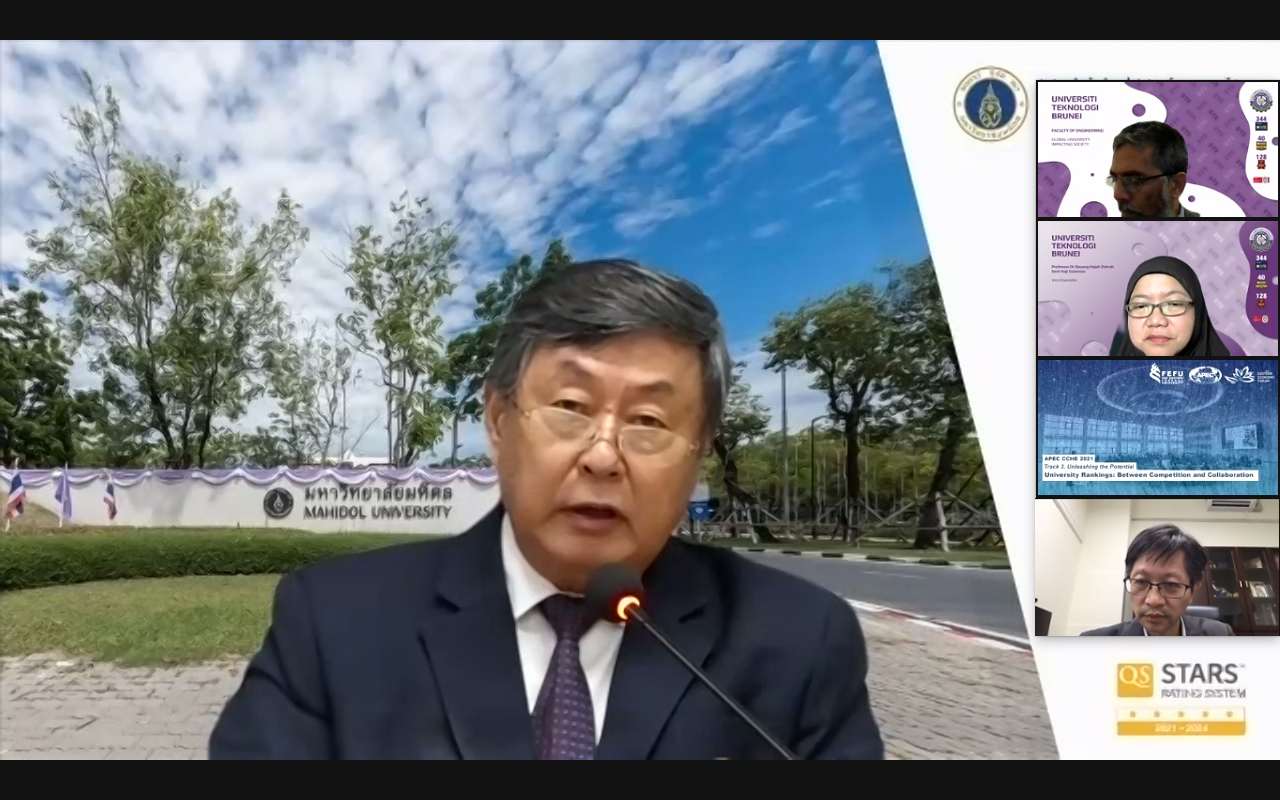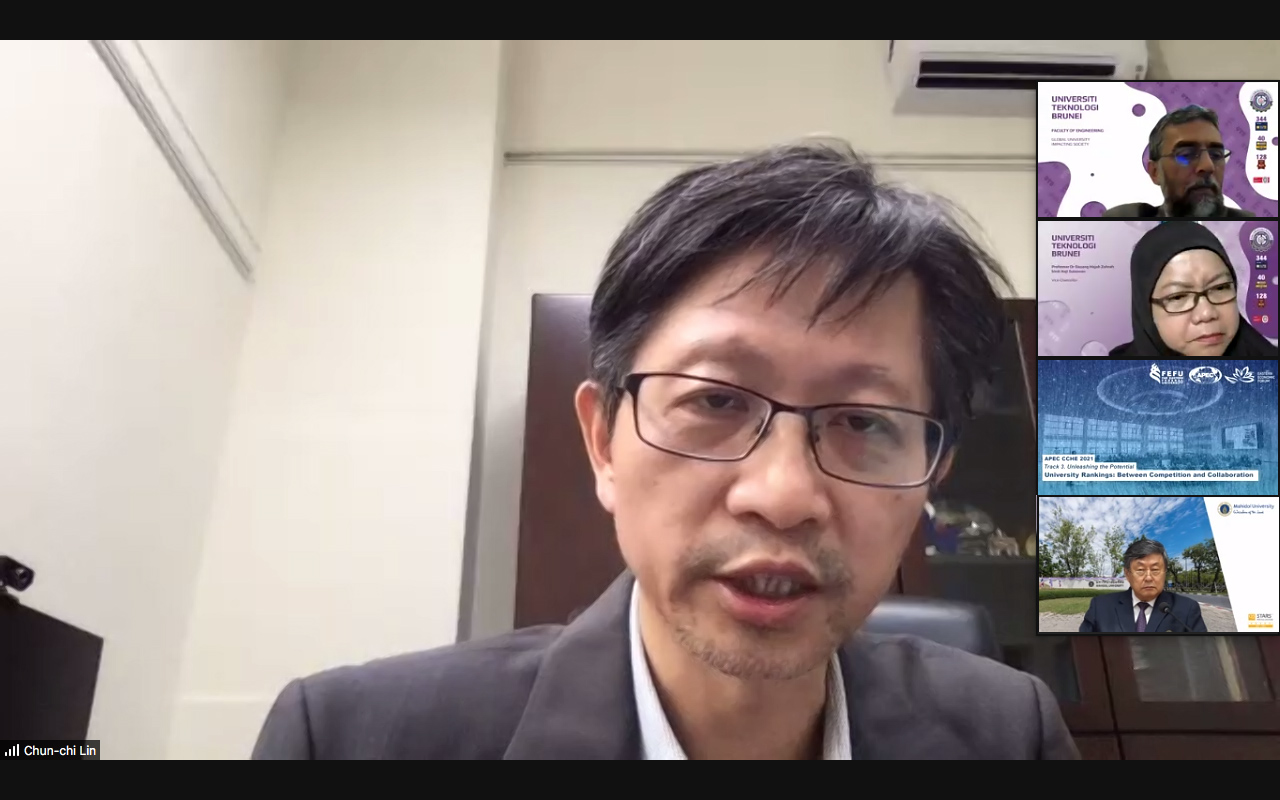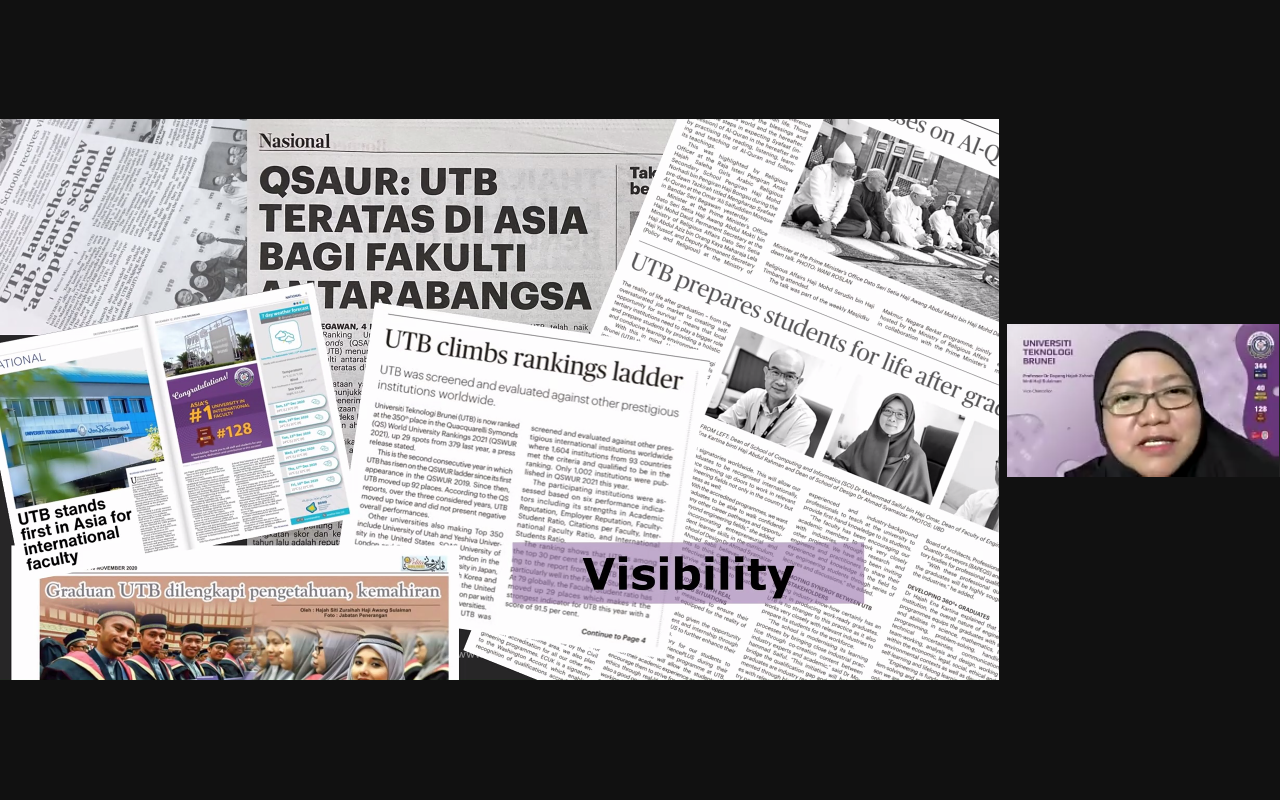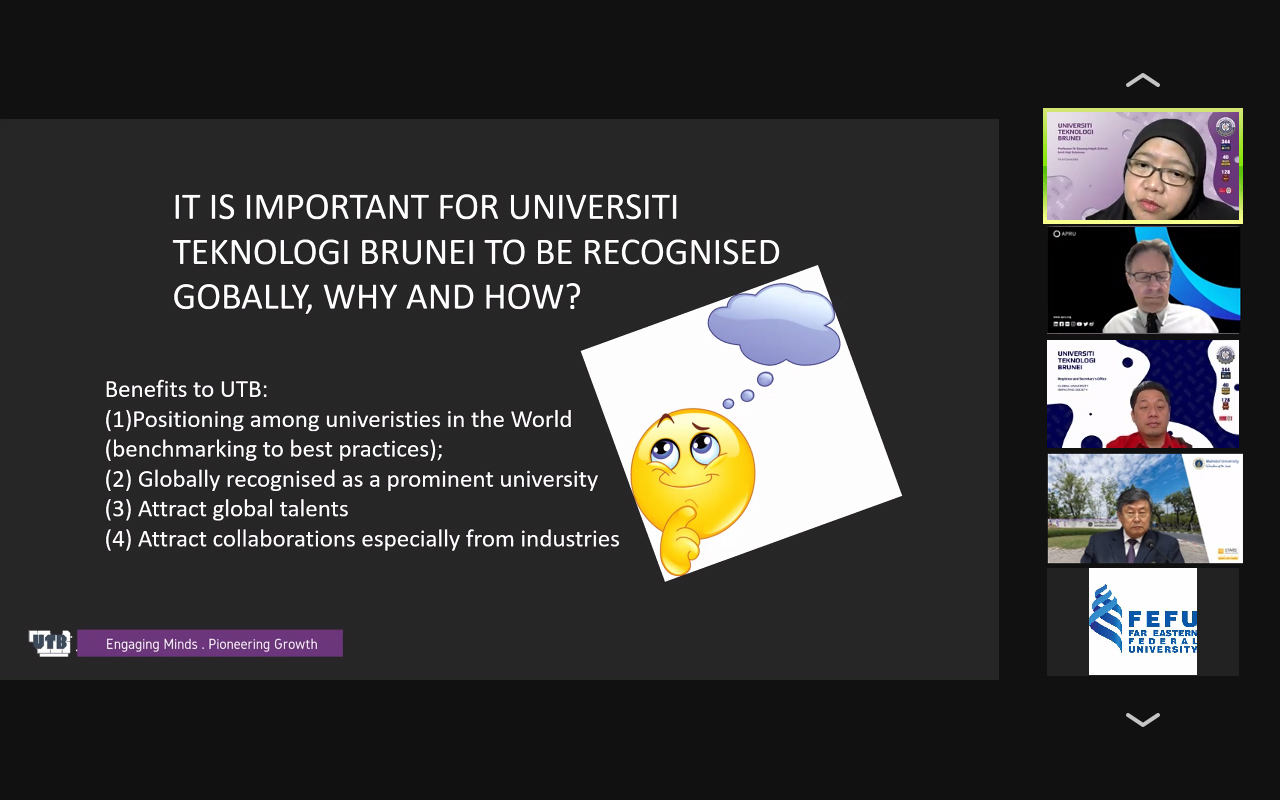3 September 2021 With the theme Ten Years Standing Together: Global Education Foresight, e minent a cademic representatives from APEC country members economies and beyond including Universiti Teknologi Brunei ( gathered at the 10th Asia Pacific Economic Cooperation Conference on Cooperation in Higher Education in Asia Pacific (APEC CCHE) to engage in a dialogue and discuss on a wide range of issues and challenges in education, science, and human capital development, as well as integrating Asia Pacific
countries’ education systems.
This conference also aims to offer insights into expanding and improving APEC educational partnerships.
Due to the ongoing COVID 19 limitati ons, this year APEC CCHE was held in a hybrid format, combining both offline and online meetings in their respective countries which commenced on 2 September until 4 September 2021.
The three day conference was organised by the Far Eastern Federal University with the support from the Ministry of Science and Higher Education of the Russian Federation the Ministry of Foreign Affairs of the Russian Federation the APEC Human Resources Development Working Group and the APEC Education Network.
The conference focused on three tracks of discussion s Track 1: Reaching for New Partnerships Track 2: Addressing the Needs of the Future and Track 3:
Unleashing the Potential Each respective tracks has three session topics
following its respective areas.
UTB Vice Chan cellor, Professor Dr. Dayang Hajah Zohrah binti Hj Sulaiman was one of the panel speakers for Track 3 along with Prof essor Banchong Mahaisavariya, President of Mahidol University and Prof essor Chun Chi Lin, Vice President for International Affairs, Nationa l Taiwan Normal University. These prominent speakers shared their views and insights on University Rankings: Between Competition and Collaboration (Session 2).
In the session, Professor Dr. Dayang Hajah Zohrah highlighted on the importance of university rankings and how it evaluates quality and global
impact of the institution through academic reputation, views of employers, teaching, research and ability to attract international talents.
She believes that through ranking, the university is able to position itself among other universities in the world (benchmarking to best practices) and to be recognised globally. It also able to attract global talents as well as both national and international collaborations especially with industries.
As for UTB’s way forward, the Vice Chancellor mentioned that the university will not only depend solely on ranking as the only tool to measure its key performance indicators ( UTB also participates in QS Star Rating which is entirely based on institution’s performance.
” Insya’Allah, UTB will continue to strive to become a Global University Impacting Society’. As UTBians, we are true to our values Pious, Professional, Passionate, Innovative, Engaging and Scholarly,” said the Vice Chancellor. These values cannot be measured by criteria set in World or Asian University Ranking.
The emergence of university rankings has become a manifestation of this competitive higher education environment. Thus, the centerpiece of the Session 2 was to outli ne how to transform university rankings from a field of a stringent rivalry between universities into a tool for fruitful engagement.During the session, participants were also invited to discuss the positive aspects of university ranking systems and oppor tunities for further improvements.


